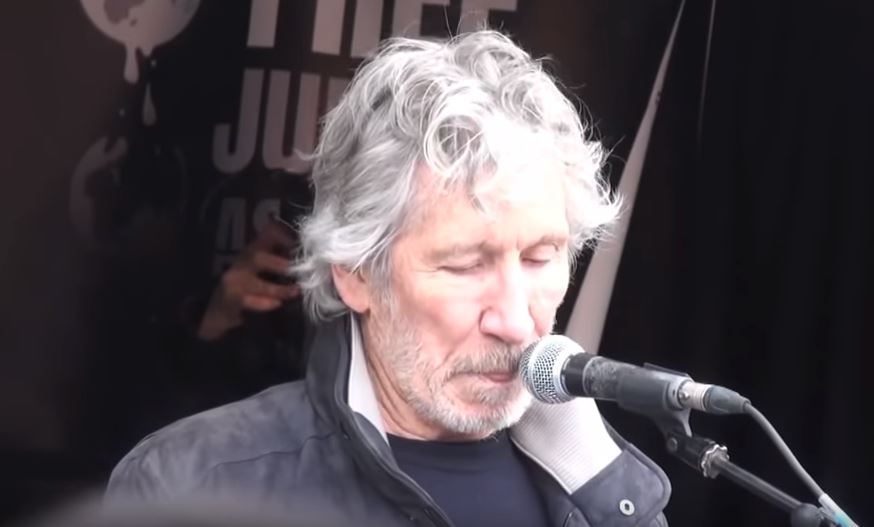“Everything will be remembered, Everything recorded", Pink Floyd co-founder and legendary musician Roger Waters said as he read out Delhi student Aamir Aziz's poem at a protest in London, describing the Citizenship (Amendment) Act as "fascist" and "racist".
The 76-year-old singer-lyricist-bassist was participating in a protest last week to demand the release of Wikileaks founder Julian Assange, who has been in jail in the UK since April 2019.
A video from the protest showing Waters reciting the English version of Aziz's popular poem and spoken word piece Sab Yaad Rakha Jayega, has been circulating widely on Twitter and other social media platforms.
"This is a young man none of us know, his name is Aamir Aziz. He is a young poet and activist in Delhi. He is involved in the fight against Modi and his fascist, racist citizenship law. I will read a little bit from one of his poems," the musician said, endorsing the anti-CAA protests and criticising the Indian Prime Minister.
Waters read:
Kill us, we will become ghosts, And write of your killings, with all the evidence;
You write jokes in court, we will write justice' on the walls;
We will speak so loudly that even the deaf will hear,
We will write so clearly that even the blind will read;
You write injustice on earth, We will write revolution in the sky;
Everything will be remembered, Everything recorded.
Amidst cheers, Waters signed off saying “I think this kid’s gotta future.”
Aziz is a writer, actor and musician with a degree in civil engineering. India was introduced to his poem after his impassioned performance of it at the “India, My Valentine” event in Mumbai on February 16. His other song Achhe Din Blues, released last year, has garnered over 200,000 views on YouTube.
When citizenry registers dissent, it needs to be registered. It is their democratic right. Not long ago, writer Varun Grover wrote and performed his poem Kagaz Nahi Dikhayenge via a twitter video post. His words now constitute what has become an anthem for the anti-CAA-NRC protests raging across the country.
Waters: Always at the forefront of protest
Waters, who has been extremely vocal about the Israeli occupation of Palestine, is also a member of the Boycott, Divestment and Sanctions (BDS) movement in solidarity with Palestinians. It did not matter to him that he lost American Express and Citibank tour sponsorships for his stand in 2016.
Canadian-Palestinian spoken word artist and activist Rafeef Ziadah was the media spokesperson for the Coalition in Gaza during the southern Israel cross-border attacks and subsequent bombing of the strip in 2011.
As the bombs came down, she was asked by a visiting journalist, “Don’t you think it will all be fine if you just stop teaching your children to hate?” Ziadah wrote and later performed We teach life, Sir in response to that. Ziadah’s piece is regarded as one of the finest examples of the spoken word form of protest.
History of protests
Which was the first protest? Was it that time in Babylon, when an incident or series of incidents led Hamurabi to write his code? Or was it that time when tortured slave labour used to construct pyramids deliberately left gaps in the impenetrable structures’ fortification? Or was it that time in 1937, when after decades of the systematic lynching of African-Americans spread far and wide across the states, Lewis Allan (Abel Meeropol) wrote:
“Southern trees
Bear strange fruit
Blood on the leaves
And blood at the roots
Black bodies
Swinging in the southern breeze
Strange fruit hangin'
From the poplar trees”?
Or was it that time, persecuted Turkish poet Nazim Hikmet was apprehended by police while waiting for his lover under a tree in a park. He wrote:
“I am a walnut tree in Gulhane Park [...]
Neither you are aware of this, nor the police”?
Every protest is a first, because organising dissent is an organic, ever-evolving programmatic. A protest defies forms, structures. One can sing, write, recite, scream as Emma Goldman would have said, “If I can't dance, it's not my revolution!”










